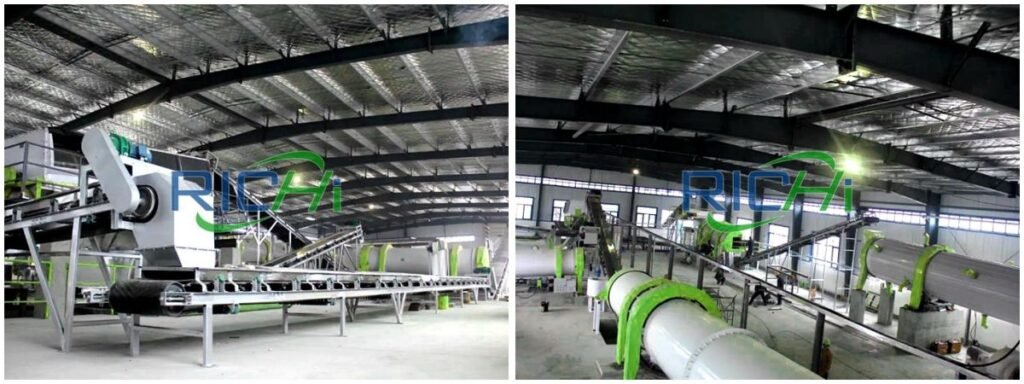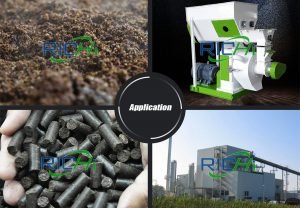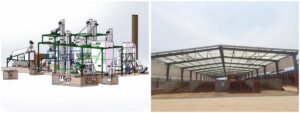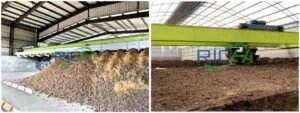In the evolving landscape of sustainable agriculture and waste management, composting stands out as a powerful method for converting organic waste into nutrient-rich soil amendments. However, the traditional handling and application of raw compost pose logistical challenges and can be labor-intensive. Enter the compost pellet making machine – an innovative technology that revolutionizes the utilization of this valuable resource.
Enhanced Nutrient Availability and Soil Health
Compost pellet making machines offer a significant advantage by enhancing nutrient availability and improving the overall quality of compost. Through the pelletizing process, organic matter undergoes physical and chemical transformations, breaking down complex compounds to make nutrients more readily accessible for plant uptake. This translates into improved soil fertility, vigorous plant growth, higher crop yields, and increased crop resilience. By optimizing nutrient delivery, compost pellets provide a sustainable alternative to synthetic fertilizers, thereby reducing environmental impacts associated with their production and use.
Ease of Application and Precision Nutrient Management
Applying loose compost can be cumbersome and inefficient, often requiring specialized equipment and substantial labor. Compost pellet making machines streamline this process by producing uniform pellets that are easy to handle and apply using standard fertilizer spreaders or broadcasters. This simplifies application, reduces labor costs, and enables precise nutrient management tailored to specific crop and soil requirements. This precision minimizes nutrient waste, maximizes resource utilization, and ensures optimal plant nutrition, thereby enhancing agricultural efficiency.
Related post:https://www.richipelletmachine.com/chicken-manure-pellet-machine/
Extended Nutrient Release and Reduced Environmental Impact
Unlike conventional fertilizers that release nutrients quickly, compost pellets provide a slow-release mechanism that delivers nutrients gradually over time. This controlled release not only sustains nutrient availability throughout the growing season but also mitigates risks of nutrient leaching and runoff, thereby minimizing environmental impacts. By improving soil structure and water retention, compost pellets contribute to long-term soil health and resilience, fostering sustainable agricultural practices.
Improved Storage and Transportation Efficiency
Handling and transporting loose compost can be challenging due to its bulkiness, weight, and susceptibility to moisture loss and odors. Compost pellet making machines address these issues by compacting compost into dense pellets that are easier to store, transport, and handle. Pelletization reduces volume and weight, minimizes moisture loss and odor issues, and lowers the risk of contamination during storage and transit. This efficiency not only reduces operational costs but also enhances overall logistics, making compost pellets a cost-effective and environmentally friendly choice for producers and distributors.
Versatility and Scalability
Compost pellet making machines are available in various sizes and configurations to accommodate diverse user needs, from small-scale gardeners to large-scale commercial composting facilities. This versatility allows users to select machines that align with their production capacities, space limitations, and budget constraints. Designed with scalability in mind, these machines can be expanded or upgraded as production demands increase, ensuring flexibility and long-term operational viability in response to market dynamics.
Integration with Existing Composting Operations
For existing composting facilities, compost pellet making machines offer seamless integration opportunities to add value to their compost output. By pelletizing existing compost, facilities can diversify their product offerings, access new markets, and maximize the economic potential of organic waste streams. This integration enhances the sustainability of composting operations by promoting a circular economy approach and reducing environmental impacts associated with organic waste disposal.
Reduced Environmental Impact and Sustainable Practices
Compost pellet making machines contribute to sustainable agriculture and environmental stewardship by promoting efficient use of organic waste and reducing dependence on synthetic fertilizers. The pelletized compost product represents a renewable and eco-friendly alternative, minimizing carbon footprints associated with fertilizer production, transportation, and storage. By embracing sustainable practices, compost pellet producers play a pivotal role in addressing global challenges related to waste management, soil degradation, and sustainable food production.
Conclusion
In conclusion, compost pellet making machines represent a transformative technology in sustainable agriculture and waste management. By converting loose compost into uniform pellets, these machines unlock the full potential of compost as a valuable soil amendment. They improve nutrient availability, facilitate precise nutrient management, and enhance soil health while reducing environmental impacts and operational inefficiencies. Whether for small-scale gardening or large-scale commercial operations, investing in compost pellet making machines not only improves agricultural productivity and profitability but also supports environmental sustainability and contributes to a circular economy. Embrace this innovative technology to foster a more sustainable future in agriculture and waste management, paving the way for resilient soils, healthy crops, and a greener planet.



